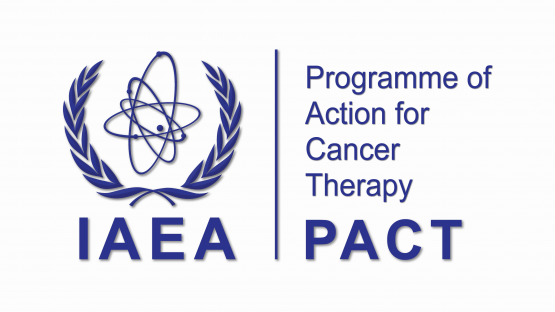Bangladesh, the seventh most populous country in the world with over 150 million people, is perhaps best known for cycle-rickshaws in Dhaka and its passion for cricket.
While Bangladesh has enjoyed an average economic growth rate at around 6% for the past ten years, its cancer burden has unfortunately also grown. In response to this alarming situation and the intention to establish a radiotherapy facility at the Bangabandhu Sheikh Mujib Medical University and expand throughout Bangladesh the Ministry of Health and Family Welfare requested the IAEA to conduct a multi-disciplinary cancer assessment (imPACT) mission which brought experts designated by the IAEA, the World Health Organization (WHO) and the International Agency for Research on Cancer (IARC) to conduct a weeklong mission from 6-10 October 2013.
During its visit, the imPACT mission team met representatives from wide ranging institutions, including the WHO Country Office, the Bangladesh Atomic Energy Commission (including the Institute of Nuclear Medicine), the Ministry of Health and Family Welfare, leading cancer hospitals, a primary health care facility, a specialized health care facility, universities and non-governmental organizations. The wide array of site visits provided the experts with up-to-date information covering each area of the cancer control system in Bangladesh.
The initial mission findings indicate that efforts in addressing specific issues in different cancer control areas are underway. Bangladesh ratified the WHO Framework Convention on Tobacco Control in 2004 and this year the Smoking and Tobacco Product Usage (Control) Act was amended to include a comprehensive ban on tobacco advertisement promotion and sponsorship, sale to and by minors, pictorial health warnings on tobacco packages, and the use of misleading descriptors on tobacco packs. The amendment has brought smokeless tobacco products, which are consumed by majority of Bangladeshis, under the purview of this law so that all regulations will equally apply to all tobacco products. It is expected that these measures will have a future impact on the high oral cancers burden of the country.
Bangladesh has also recognized that the over 10 000 deaths due to cervical cancer annually (IARC, 2008) could be reduced through an effective low-cost early detection programme. The cervical cancer screening programme involving visual inspection with acetic acid (VIA) followed by treatment ('see and treat' method) has been in place in Bangladesh since 2004. The country currently has 300 VIA centres with sufficiently trained health workers in all districts and a referral system across Bangladesh for diagnosis and treatment of pre-cancerous lesions. In 2012, around 105 000 women were screened, and 500 000 over the last 5 years. According to Dr Rengaswamy Sankaranarayanan, Head of the Cancer Screening Group at the International Agency for Research on Cancer (IARC) in Lyon, France, "Bangladesh has developed a cost-effective cervical cancer screening programme that could serve as a regional model for the developing countries."
In 2014, the imPACT mission report will be delivered to the Minister of Health and Family Welfare and will include the expert team's detailed findings and recommendations to advance cancer control in Bangladesh. This will provide timely expert guidance as Bangladesh sets out to increase the number of radiotherapy units throughout the country.
The IAEA imPACT mission to Bangladesh was conducted under IAEA Technical Cooperation project RAS/6/069 'Supporting Comprehensive Cancer Control in the Asia and the Pacific Region.'


